In this guide, we will talk about some of the benefits of plant-based proteins for seniors, and the plant sources from which they can get these proteins.
Contents
Protein is an essential nutrient that helps grow and repair cells and tissues in our body. As the body ages, the composition of our body changes, leaving us with lower protein content in the body than when we were younger. This is why older adults should take higher protein content in their diet than younger ones.
Most people globally consume animal-based protein. However, plant-based proteins are more beneficial because they’re low in cholesterol and fat. Secondly, people are shifting to alternative protein sources to fight climate change.

Plant-based diets are effective in preventing blood pressure, type 2 diabetes, and lowering toxins in the body. Vegans and vegetarians can get their protein needs from a wide variety of plant-based sources. In this article, we will talk about some of these benefits and the plant sources from where you can get these proteins.
Why Is Protein Important for the Elderly?
Protein is vital for everyone, but as people grow old, their cells hardly get repaired due to protein deficiency. Protein is crucial for cell repair. Protein also has many health benefits. This is why older adults should take higher protein content in their diet than younger ones.
Why Are Plant-Based Proteins Better?
Plant-based proteins are better than animal-based proteins because plants provide protein without other problem-causing foods such as fats and cholesterol. They help people keep in shape and prevent many health problems.
A plant-based diet for seniors can aid weight loss, according to a study. Eating a plant-based diet regularly for a year can help reduce body mass index, lower cholesterol levels in the body, and diminish many health-related risk factors. It may also reduce the risk of cognitive impairment and dementia in seniors.
As per the study, Seniors can get 19.9 grams per portion of protein from a bowl of quinoa & pistachio salad, 19.2 grams per portion of protein from Lentil Spaghetti, and 18.8 grams per portion from Soya bean masala. Older adults can also get more protein from a portion of Poke Bowl (32.8 g), Bean Burrito(22.4 g), and cooked breakfast(33.9 g).
What Are the Health Benefits of Eating Plant-Based Proteins For Seniors?
Experts find that reducing animal-based protein and shifting to plant-based protein can help in the prevention and cure of many diseases:
Diabetes
In the U.S., 12% to 14% of Americans had type 2 diabetes as of the 2012 report. The benefits of plant-based food products are numerous. Diet based on plants helps exclude animal-based food that promotes insulin resistance.
Doctors advise that following a whole-food plant-based diet can help prevent and manage diabetes. It also helps lower the chances of having diabetes. Doctors believe that consuming meat can increase the risk of developing diabetes.
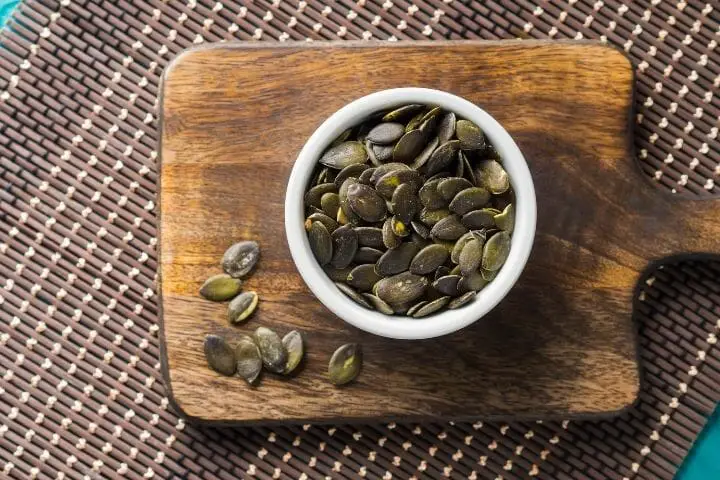
Heart disease
Evidence shows that eating whole plant-based food can help lower the risk of coronary heart disease. It also prevents cardiovascular disease. Scientists also find that a poor diet can negatively influence blood pressure.
Doctors advise people to follow a rich diet of vegetables, fruits, and low-fat dairy products to reduce their blood pressure. One more study shows that a diet change also helps in reducing hypertension due to high blood pressure.
Stroke
A plant-based diet can reduce the chances of having a stroke in people.
Cognitive decline
Cognitive decline is typical in elderly people aged 65 or above. But plant-based protein minimizes the risk of cognitive impairment, dementia, and other mental illnesses.
Experts believe that polyphenol, a micronutrient present in plant-based foods, helps slow down the progression of Alzheimer’s disease. You can find polyphenols in many fruits and vegetables, including dark chocolate, berries, green and black tea, red grape juice, nuts, beans, and soy.
Cancer
Plant-based food is very beneficial for elderly people as it can lower the risk of total cancer, colorectal cancers, and gastrointestinal cancers. A vegan diet can also lower the chances of many cancers, such as female-specific cancers.
Obesity
A plant-based diet can help lower cholesterol, reduce BMI and weight. In comparison, an animal-based diet increases weight gain as it is rich in fats.
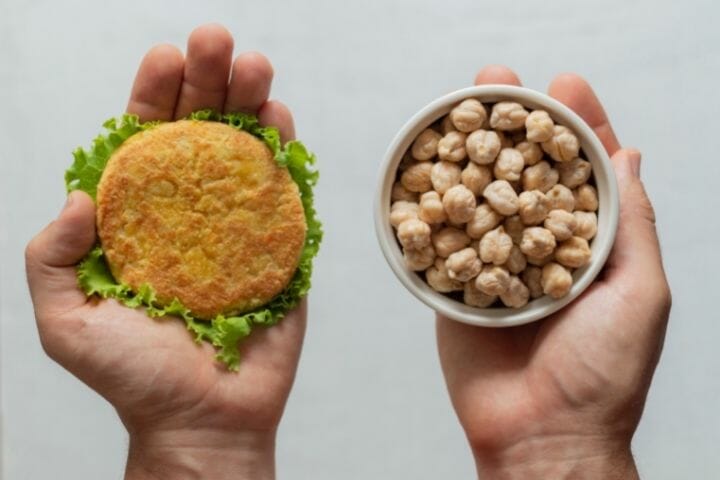
Rheumatoid Arthritis
A plant-based diet helps alleviate symptoms of Rheumatoid Arthritis. It helps reduce excess body weight, relieve pain and inflammation, and improve gut bacteria composition.
Renal impairment
A plant-based diet can diminish the risk of renal impairment. Chronic kidney disease is common in seniors without a plant-based diet.
Other Reasons Why People Choose Plant-Based Proteins
A plant-based diet is not only profitable for an individual but also good for the environment. It reduces the emission of greenhouse gasses.
Animal farming harvests animal-based food with large waste while polluting the environment. However, in plant-based food production, fewer greenhouse gas emissions occur.
Meat processing contributes to 22% of greenhouse gas emissions and utilizes 18% of water and 28% of total earth land.
Greenhouse gas can impact health by increasing air pollution and smog. According to a report, air pollution is the direct cause of annual health effects in California. Some health impacts include asthma attacks, premature death, and hospital admissions. A plant-based diet will help reduce these emissions almost completely.
Most Popular American Diets
According to the CDC, 17% of Americans followed a diet plan in the previous year. Many older adults know the value of a healthy diet. However, some people still don’t follow any diet. The most famous diet in America includes:
- A ketogenic diet, low carbohydrate or high-fat
- Paleo or whole diet
- Mediterranean diet
- Vegetarian, vegan, or flexitarian diet
- Plant-based diet
About 43 million Americans follow the plant-based diet and eat entirely plant-based alternatives.
Some plants rich in protein includes; potatoes, artichokes, asparagus, collards, brussels sprouts, corn, broccoli, spinach, peppers, turnip, and sweet potatoes.
Some foods that fill the place of protein from meat include tofu, mushrooms, lentils, chickpeas, quinoa, beans, and legumes. With this food, you can continue your plant-based diet with meat.
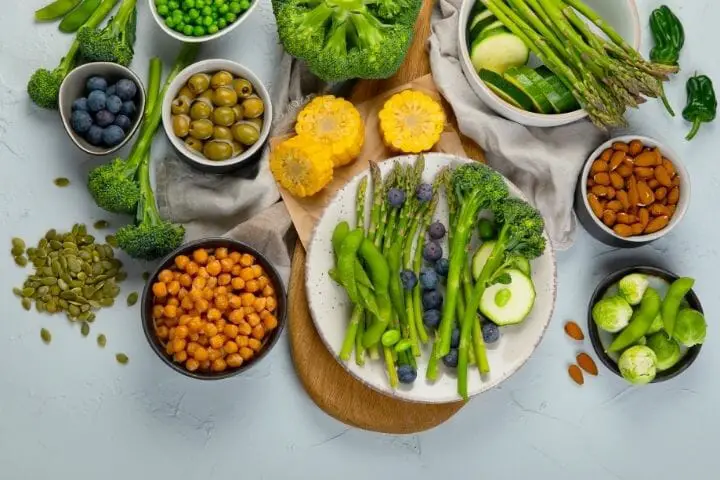
Americans Think Plant-Based Diets Mean
Many people think about a plant-based diet from a different perspective or get confused, and some think it’s vegan while others think it is vegetarian.
- Over 30% of Americans think it is Vegan
- About 20% of Americans think it’s Vegetarian
- 30% of people think it is minimally-processed, vegetarian, and vegan
- Less than 10% of people believe it is maximizing fruits and veggies.
- 10% are unsure.
However, a whole-food, plant-based diet actually means the maximum intake of fruits and vegetables, minimally processed whole foods, and removing or limiting eggs, meat, and dairy products.
Not All Plant-Based Diets Are Healthy.
Many people shift to a plant-based diet as they think it’s healthy for them. However, it’s not fully true; some plant-based foods are not as healthy as others.
High-quality nutrient-dense food such as vegetables, whole grains, fruits, and nuts help reduce the risk of death from cardiovascular diseases.
But lower-quality poor diets such as sweets, potatoes, fruit juices, and refined grains are not as beneficial and healthy as high-quality plant-based food.
Future of Plant-Based Proteins
Many new regulations and advanced studies are in action to provide the world with tasty plant-based proteins with nutritional value and sustainability at the right price. Scientists expect that plant-based alternative protein will achieve parity with animal-based protein by 2023.
Scientists, incumbent food companies, startups, and investors put many efforts into leading a technological step that changes the food chain by improving plant-based product quality. They are also working on accelerating the production and availability in the market of plant-based food to 16% by 2035.
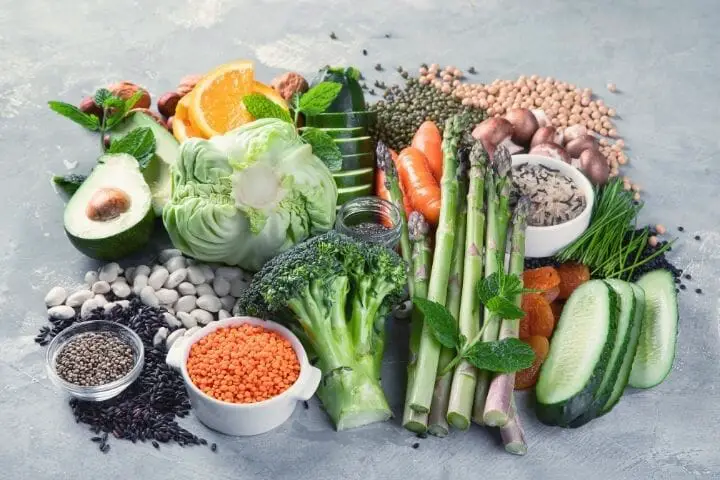
Many regulations and policies support the plant-based diet. Food companies such as red robin, subway, burger king, Qdoba, and KFC introduced their customers to plant-based food products options. More companies are also planning on introducing plant-based options to their customers.
Today, not all people take part in protein transformation. People like to buy plant-based food products based on novelty. However, experts say by 2035, all animal protein sources such as meat, egg, seafood, and dairy products will have alternative plant-based proteins.
But before transforming, alternate proteins must reach full parity in the taste, price, and texture with conventional animal proteins
- Taste: experts say that the plant-based protein will imitate the well-known excellent flavor and smell of animal-based proteins.
- Texture: the plant-based food must feel and look precisely like animal proteins. Many people like to experience the fibrous texture of meat and the flaky structure of fish. Many alternative protein sources are developing to have the same texture as animal proteins.
- Price: in the future, if large groups of consumers work together to make an effort to purchase plant-based protein, the costs will be lower than animal-based protein. Scientists are working to find an efficient method to produce plant-based proteins on a large scale to make them less expensive and available for all people.
Wrap Up
Plant-based meals are becoming popular globally. The benefits of plant-based proteins are not limited to a person’s health but contribute to improving the environment. Scientists advise people to shift from meat to plant as it lowers carbon emissions due to animal farming.
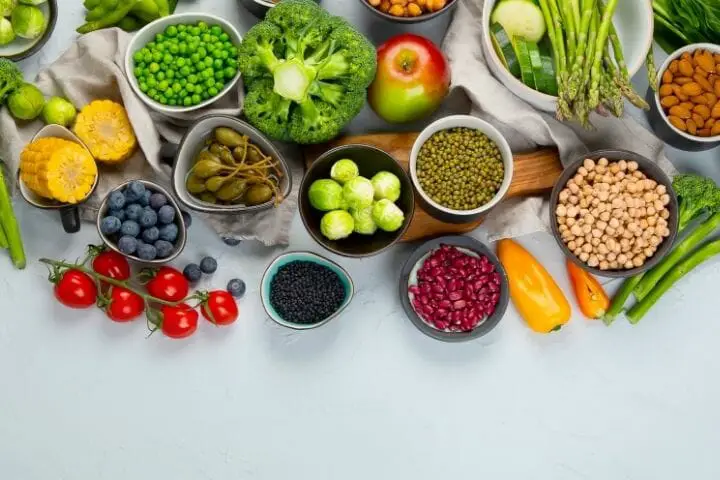
With suitable protein diets, people can live longer and healthier. However, before changing your diet plan, contact your healthcare provider and plan a rich diet in fruits and vegetables with them.
We hope we were able to convince you of the need to shift to a plant based protein diet if you are a senior. If you have more questions that you would like us to answer, please do not hesitate to reach out to us. And as always, if you love the content, please post it on social media and your groups so that others can also benefit from it.
You might also be interested to read:
